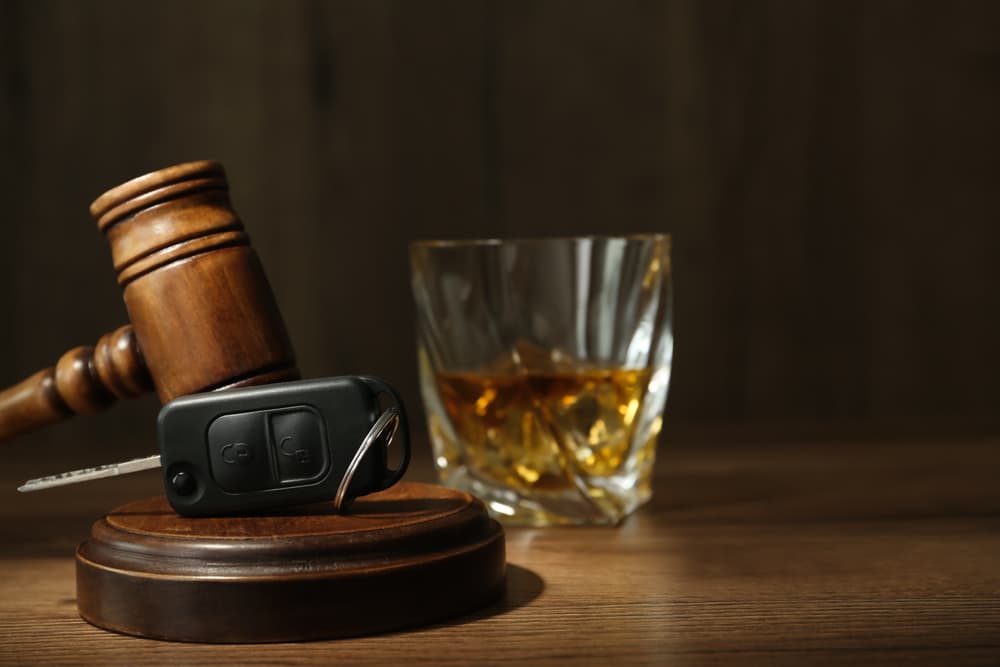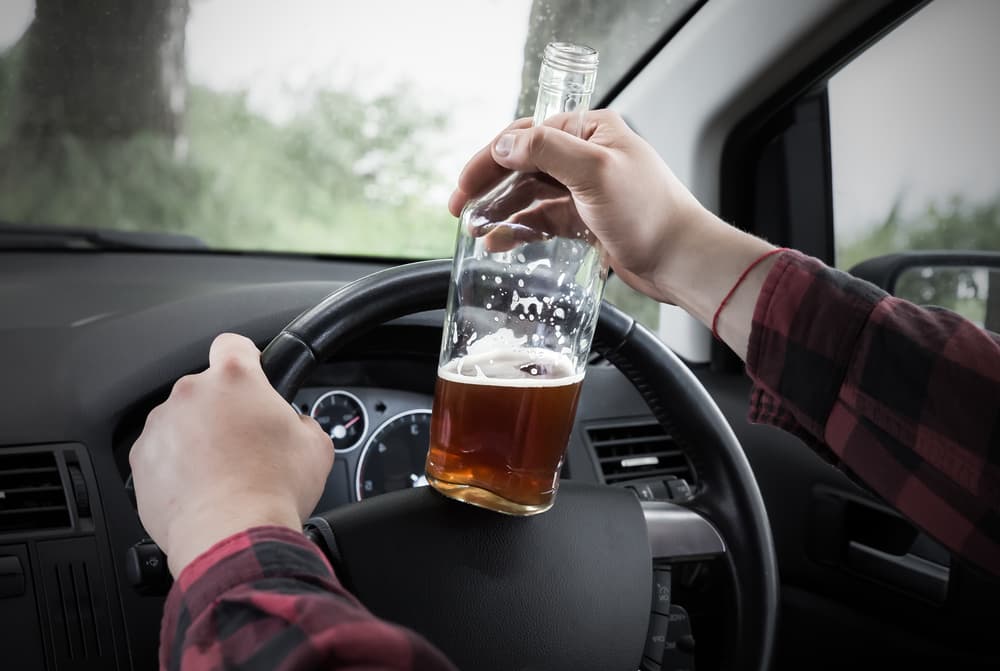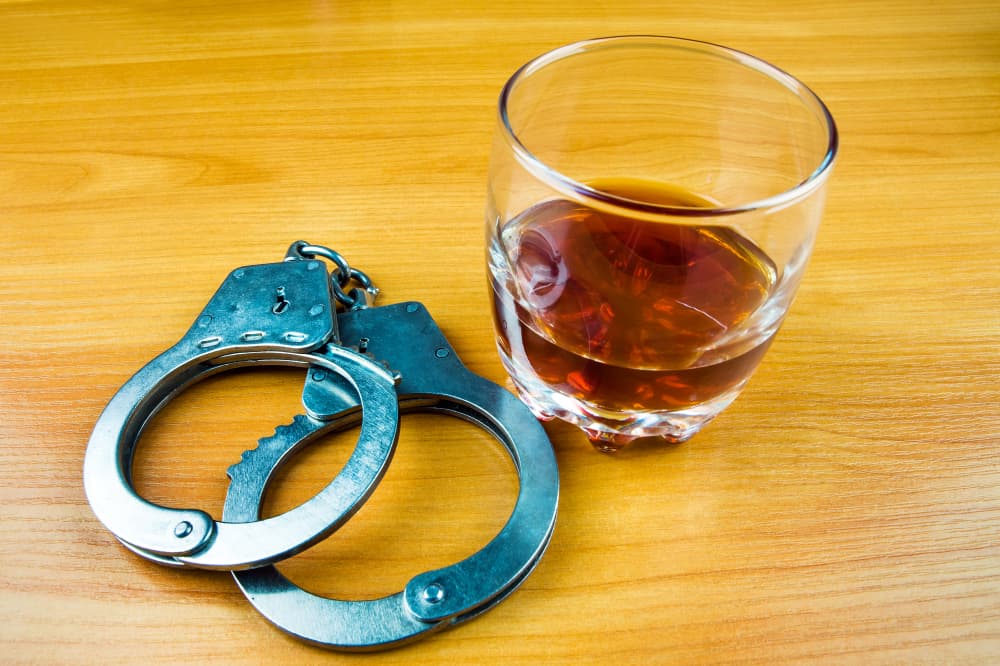Getting arrested and charged with driving while intoxicated, also known as a DWI, in Texas can scare and intimidate most people.
Some people think they can fight a DWI without a lawyer, but they rarely understand the actual DWI charges, the legal process, and how seriously they can damage their futures by trying to fight a DWI charge without a lawyer.
Trying to fight a DWI charge without a lawyer will frequently overwhelm most people and leave them at a legal disadvantage.
A skilled and knowledgeable DWI defense lawyer in Texas can help you with your case and allow you to build a strong defense while protecting your rights throughout the legal proceedings.
The Law Offices of David M. White delivers comprehensive and reliable defenses for our Texas clients facing DWI charges. Call our team today at (325) 437-3311 for your free initial consultation with a trusted member of our team.
Why Choose the Law Offices of David M. White

At the Law Offices of David M. White, our dedicated team is devoted to helping our fellow Texas build strong defenses in their criminal cases.
We work hard on each client’s case to deliver the best results possible, easing the stress of you and your loved ones during your challenging times.
Our team is committed to helping our West Texas community by proudly delivering dedicated and compassionate service and assistance with your legal needs. We appreciate how crucial your case results are for your future, and we strive to provide unyielding representation and advocacy for you throughout your case.
A recent client expressed gratitude for our help with their DUI case, appreciating our thorough explanations of what they faced and our guidance on the best path forward.
Our West Texas law offices are conveniently located in
- Abilene - On the northeast corner of Treadaway Boulevard and Industrial Boulevard, just outside of the Abilene Country Club
- San Angelo - On College Hills Boulevard, a few blocks north of the West 306 Loop
Call the Law Offices of David M. White today to schedule your free initial consultation. Let us manage the burden of your criminal defense.
What Is a DWI in Texas?
The Texas Penal Code classifies a DWI as illegally operating a motor vehicle while under the influence of alcohol, illicit drugs, and prescription drugs.
The legal limit for alcohol in Texas for a person of 21 years or older is below a blood alcohol content (BAC) of 0.08. If law enforcement tests a person with a BAC of 0.08 or higher, that person is subject to being charged with a DWI.
Being arrested for a DWI in Texas can result in a Class B misdemeanor charge that can be accompanied by a minimum of 72 hours of confinement.
How Is a DWI Different From a DUI?
Driving while intoxicated, or a DWI, applies to people 21 years of age or older in Texas.
According to the Texas Alcoholic Beverage Code, those under the age of 21 who police arrest for driving under the influence of alcohol will face a DUI, meaning driving under the influence. A minor can face a DUI for operating a motor vehicle in a public place with any detectable amount of alcohol in their system.
First-time DUI offenders typically face a Class C misdemeanor. They usually must perform community service. Repeated DUI offenses can lead to increased community service, fines, and jail sentences.
What Are the DWI Laws in Texas?

Multiple laws can influence the severity of a DWI charge in Texas.
If you or your loved one face a DWI, hire a well-versed DWI lawyer to build a strong defense against these serious charges while protecting your rights.
Implied Consent State
The Texas Transportation Code identifies Texas as an implied consent state.
In an implied consent state, a driver automatically consents to drug and alcohol testing if law enforcement arrests them for driving in public while intoxicated.
A driver who refuses chemical testing when pulled over by law enforcement will face the suspension of their motor vehicle license for a minimum of 180 days.
Per Se Law
Texas law enforcement is subject to a per se law, which means “by itself” in Latin. A per se law means that law enforcement does not need to prove any other signs of impairment to charge a person at least 21 years of age or older with a DWI if that person tests positive for a BAC of 0.08 or more.
Enhanced DWI Charges
Enhanced DWI charges commonly result in an increased penalty above the standard Class B misdemeanor charge, which carries a minimum sentence of 72 hours of confinement.
A Class B misdemeanor in Texas carries a penalty of a fine of no more than $2,000, confinement in jail for up to 180 days, or a combination of both.
Working with a distinguished DWI defense lawyer will properly defend you or a loved one against all types of DWI charges while protecting your rights through complicated legal proceedings.
High BAC Level at or Above 0.15
A standard DWI charge applies when law enforcement conducts a blood, urine, or breath test that shows the driver’s blood alcohol concentration (BAC) is at a level of 0.08 or above.
If the driver’s BAC level tests at 0.15 or higher, the DWI offense becomes a Class A misdemeanor.
In Texas, a Class A misdemeanor can result in a fine of no more than $4,000, confinement in jail for up to one year, or a combination of both.
Open Container
An open container of alcohol found within the driver’s immediate possession during a DWI arrest will result in a Class B misdemeanor charge with a minimum confinement of six days, up from the standard DWI charge minimum of 72 hours of confinement.
Child Passenger
Driving while intoxicated with a child in the vehicle significantly increases the punishable DWI offense.
The Texas Penal Code states that a person driving while intoxicated with a child under the age of 15 in their vehicle faces a state jail felony offense.
Texas punishes state jail felonies through confinement in a state jail for 180 days to two years and a fine of up to $10,000. The state can enhance the penalty to a third-degree felony if it involves a deadly weapon or the alleged offender committed a previous felony.
Intoxication Assault
A person commits an intoxication assault offense when they drive while intoxicated and cause serious bodily injury to another person.
The Texas Penal Code further defines serious physical injury as one that causes severe permanent disfigurement, impairment, loss, or risk of death.
An intoxication assault DWI charge increases the offense to a third-degree felony, which is punishable by imprisonment in the Texas Department of Criminal Justice for a term ranging from two to 10 years, as well as a fine of up to $10,000.
Intoxication Manslaughter
When a person accidentally kills someone while driving while intoxicated, they commit intoxication manslaughter.
Intoxicated manslaughter is a second-degree felony offense punishable by imprisonment in the Texas Department of Criminal Justice for a term ranging from two to 20 years, as well as a fine of up to $10,000.
Other Types of DWI Charges

People often associate a DWI charge with operating a personal motor vehicle, such as a car, van, or truck. However, a person can face a DWI in Texas for operating other motorized vehicles or devices.
Boating While Intoxicated
A person who operates a boat or other type of watercraft while intoxicated can face a DWI punishable by a Class B misdemeanor and a minimum of 72 hours of confinement.
The state can enhance the DWI charge if a person operates a watercraft while intoxicated and has a child passenger on the boat. If the child is younger than 15, then the charge increases to a state jail felony.
Flying While Intoxicated
Texas makes operating an aircraft while intoxicated under the influence of drugs or alcohol a Class B misdemeanor with a minimum of 72 hours of confinement.
Assembling or Operating an Amusement Ride While Intoxicated
A person who either assembles or operates an amusement ride while intoxicated from alcohol or drugs can face a Class B misdemeanor with a minimum confinement of 72 hours.
If an open container of alcohol is found within reach of the person assembling or operating the amusement ride, then the minimum confinement term increases to six days.
Drunk Driving Accidents in Texas
According to the Texas Department of Transportation (TxDOT), 1,090 people died in one recent year in Texas in an accident that involved a driver under the influence of alcohol, representing 25.45% of all people killed in motor vehicle crashes in Texas that year.
The TxDOT reports that the majority of alcohol-related crashes occurred between the hours of 2:00 am and 2:59 am, and Sunday was the day of the week that had the most alcohol-related crashes.
The National Highway Traffic Safety Administration (NHTSA) states that 37 people are killed every day in the United States in a drunk-driving accident. The NHTSA calculates that one person dies every 39 minutes in a drunk-driving crash. A total of 13,524 deaths occurred nationwide in one recent year as a result of alcohol-impaired traffic accidents.
What Do I Do After a DWI Arrest in Texas?

Most people feel anxious, distressed, and confused after police arrest them for a DWI in Texas.
They are often unsure how to defend themselves properly and do not know who to turn to for help.
Take the proper steps after a Texas DWI arrest to build a strong defense and protect your rights.
Do Not Accept the Initial Offer
The prosecution team often intimidates defendants into thinking they need to plead guilty and accept their team's initial offer.
Do not accept any initial offers or plea deals from the prosecution without first consulting a defense lawyer.
Accepting an offer or plea deal from the prosecution without having proper legal guidance can put you at a legal disadvantage, weaken your defense, and potentially increase the penalties you will face for your DWI charge.
Work With an Attorney
Work with an attorney as soon as possible after A DWI arrest.
Some people think they can fight a DWI without a lawyer, but they often feel overwhelmed and confused while putting themselves at a severe legal disadvantage.
A strong and diligent DWI defense lawyer will build a strong defense for you, protect your rights, and increase your chances of seeing lesser penalties.
Work With a Trusted DWI Defense Attorney in Texas
A DWI arrest in Texas is often a terrifying experience.
Most people don't know how to properly defend themselves when charged with this serious offense.
A trusted DWI defense lawyer in Texas will build a strong defense for your case while protecting your rights throughout the complicated and confusing legal process.
Allow our dedicated team at the Law Offices of David M. White to assist you and your loved ones in your DWI defense case so that you can better focus on getting your life back on track.
Call us today at (325) 437-3311 for your free initial consultation, and let us manage the complicated burden of your criminal defense for you and your loved ones.
